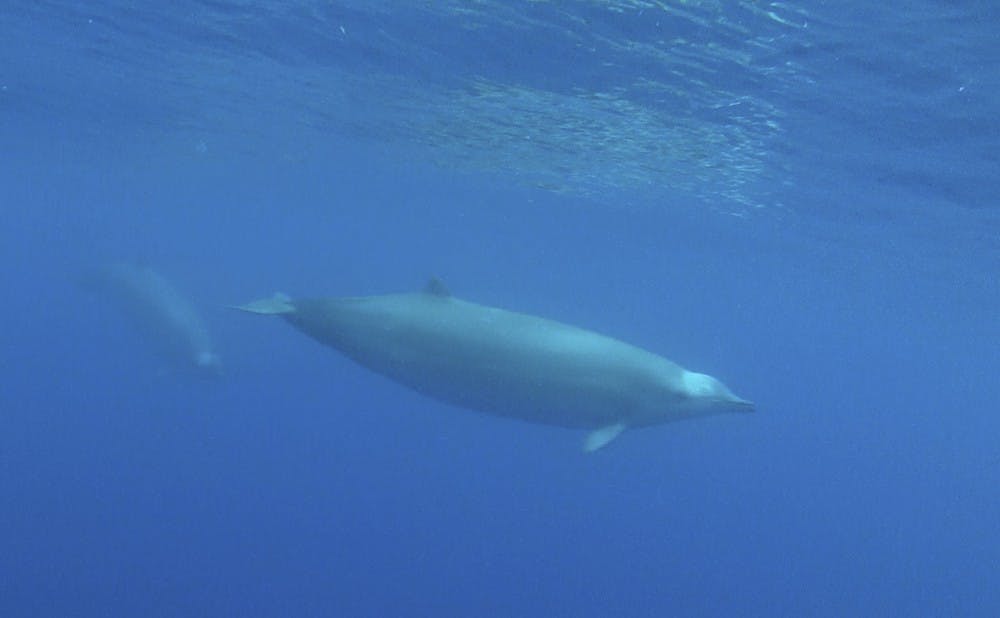Marine biologists now know more about the world's deepest-diving mammal, thanks to a new Duke study.
The research focused on Cuvier's beaked whales, which dive almost two miles underwater but barely need to catch a breath. Researchers recorded nearly 6,000 dives off the North Carolina coast and published their findings in the journal Royal Society Open Science.
“Cuvier’s beaked whales are the deepest diving mammals in the world, but there’s so much we still don’t know about their behavior and physiology," said Jeanne Shearer, a doctoral student in ecology at Duke University’s Nicholas School of the Environment.
Shearer, who was lead author of the paper, studies Cuvier’s beaked whales at the depths of the ocean, where temperatures and pressures push the limits of physical capabilities of mammals.
The whales spend very little time at the surface, she explained, and make dives that are nearly 5,000 feet deep on average and up to approximately 9,200 feet.
Beaked whales have a unique diving nature, both in terms of depth and frequency. Shearer and her team have been using satellite-linked dive recording tags on the whales to better understand what they do under the water.
It has been difficult to gather data from their dives since the whales are found in an area about two hours away by boat, but the distance doesn’t stop Shearer.
“We are interested in these animals because of their amazing diving abilities and because there’s still so much we can learn about them,” she said.
However, the whales aren’t making this task easy. The limited time they spend at the surface makes it more difficult for the researchers to get readings.
Although it isn’t fully understood which aspects of their physiology allow them to maintain such deep dives with little recovery time, Shearer explained it may be due to their muscle fibers having a heightened capacity for oxygen.
Beaked whales also vary in their diving behavior based on region. For example, Shearer added that the whales she studies in the Atlantic Ocean dive slightly deeper but for a shorter duration than beaked whales in other regions of the world.
Shearer said that her team will continue to tag and study the dives and social behaviors of beaked whales in the Atlantic Ocean off the United States, which will help to gain a better understanding of the factors possibly contributing to their impressive diving depths.
“For beaked whales, the answer to most of the questions is still ‘we don’t know’ but as more studies emerge, we will start to get a better picture of these amazing divers,” Shearer said.
Get The Chronicle straight to your inbox
Signup for our weekly newsletter. Cancel at any time.

